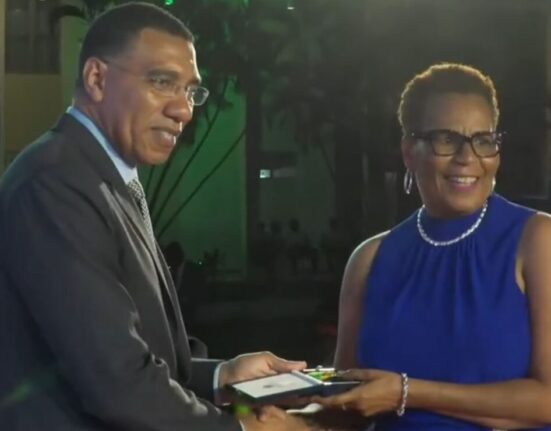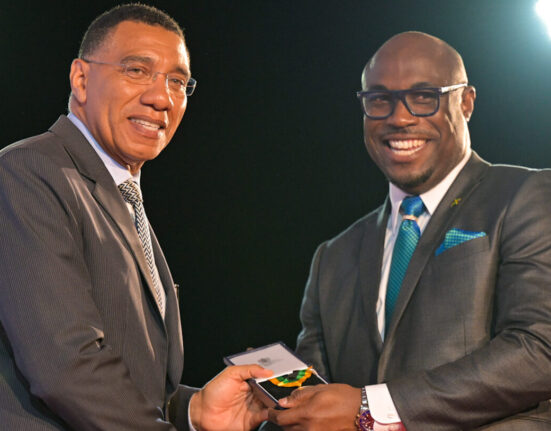By Eugenia Robinson
The word ‘Mathematics’ drives fear into many adults and they in turn drive this fear into their children. Many of these adults have become teachers of young children and they teach math to children the way they were taught. Early childhood is the period of play and learn, and good schools ensure that play is an important component of the curriculum. On the other side of the math equation, parents who are paying fees for their children to attend basic schools are very critical about play. They believe that children play too much and they should spend more time at their books. Most children at the pre-school level are not reading, so they picture read and depend on an adults to guide them. They cannot change what is on the page, therefore children need activities that they can manipulate to help them understand concepts. Happy children want to play.
What is play?
Play is a child’s work and children require a balance between exuberant play, quiet play and work-play. Early childhood play is for enjoyment not work. When play is denied, and children get a break, there is wild exhuberance, risk taking as they find ways to release that pent-up energy. To avoid accidents, children must be supervised.
Children, one and two years old, play by themselves. We call this – solitary play.They can keep their own company, but while they play, they are stimulating their brain and these experiences become very useful for problem solving. Have you ever missed your young child and rushed off to find where he/she is? Yes, he is quiet but engaged There is lotion or tooth paste on a trail, a doll is getting a bath in the toilet bowl? A marker or lipstick has left a message for mom. The parent or caregiver’s response is, “You are too rude!”. No, your child is not rude, he is learning from the experiences.
Experienced parents always remember to take a toy, book, crayon and paper along for a waiting appointment with the child. Sometimes eating or drinking are not allowed in waiting areas and the risk of having your children eating with unwashed hands could be dangerous. I have seen thoughtless parents giving their children snacks while waiting in a doctor’s office. Some children are even slapped to behave. (blurb) I see them in the classrooms, very timid, afraid, shy and cautious. These children may never be mathematicians, if they are too afraid to venture into the unknown. Teachers are worried about them. Are they experiencing bad times at home?
Pre-school or basic school children are social beings, they like to play as a team, but when they are alone at home with an adult, they will play close by and continuously seek some attention. This is the time to commend the child, and the parent may even pose a problem for the child to solve. Boys and girls have their favourite play but sometimes roles are changed. Some parents have gone overboard to determine what is boy’s play from girl’s play. Parents are very selective that certain toys and colours belong to a particular gender, and some girls have been called ‘Tom boys’. In well-organised pre-schools, children freely change roles, especially when they play in the home corner, dressing-up is their choice. Ball games are encouraged for all children. In the adult world, females are now police, firefighters, cricketers, engineers. Parents should not limit their children.
Importance of Games
Children need a break from the rigid time tables at school. Parents should play dominoes with their children. The domino patterns stimulate brain activities which will develop sharp visual and memory skills. Children learn to identify sets, long before they have a clear knowledge of numbers. Jig-saw puzzles help to develop visual discrimination, that is, children spot differences very quickly. Fine motor skills are needed to get puzzle pieces together. The child estimates the space to be filled by a puzzle piece and knows what he is looking for. Card games involve a lot of matching and remembering. They identify the names – Jack, Spade, Queen and King. An important advice for parents who play or supervise play at home is that, they should use the language of the classroom and allow ample time for the child to think and respond. Similarly, parents should avoid unnecessary scolding. Home is the child’s first school where there is opportunity to try-out, exercise patience, give support and encourage do-it-yourself tasks.
The purpose of this paper on early mathematics is to help parents understand that Mathematics is more than counting. The language of mathematics in early childhood is learnt through play.The most difficult part of early mathematics is to help children to understand the meanings of the related concepts. This is not difficult because concepts can all be learnt and understood through play. “ I hear and I forget. I see and I remember.I do and I understand.” Anon.
Continued next week.









